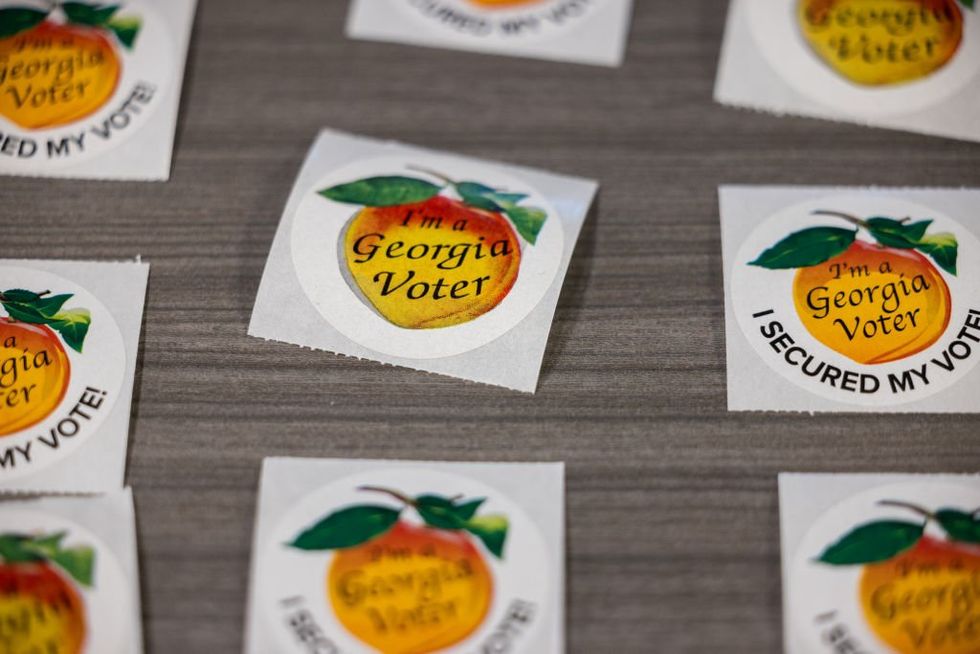'Weapon of mass death': Explosive details about criminal history of Trump's second suspected would-be assassin
Alleged would-be assassin Ryan Wesley Routh was already under indictment for possessing an explosive device when he fled from police during a traffic stop and barricaded himself inside his roofing company in December 2002, court records show.Despite the seriousness of both offenses and Routh’s long criminal record in North Carolina, he didn’t serve any jail time as a result.'He was rather notorious among my people.'“Guilford County and greater Greensboro are historically very liberal,” Republican B.J. Barnes, who served as Guilford County sheriff for 24 years, told Blaze News. “Our courts here would rather plea out everyone to lesser charges than do the work of convicting real criminals.”Routh, who faces federal and possible state charges for the Sept. 15 attempted assassination of former President Donald J. Trump, was indicted in October 2002 for possessing what court records said was a “weapon of mass death and destruction, a binary explosive device with a detonation cord and a blasting cap.”Routh was first arrested on the explosives charge on April 23, 2002. He was released from custody on a $10,000 bond on April 30. At the time of that arrest, Routh was already on pretrial release in another case, court records said.While out on bond for the explosives indictment, Routh was arrested Dec. 15, 2002, after he fled police during a traffic stop. He holed up at his roofing company and kept police at bay for three hours, local media reported at the time.Retired Greensboro Police Sgt. Tracy Fulk told WPTV television in West Palm Beach that she pulled Routh over because she knew he did not have a valid driver’s license.“I saw him reach toward the center of his vehicle, so I shined the light in to see what he was doing,” Fulk told the television station. “He opened the duffel bag and there was a gun in it. So I pulled my gun, started issuing commands.”Sheriff Barnes said he never interacted with Routh, but his deputies did assist the Greensboro Police Department when Routh barricaded himself.“He was rather notorious among my people,” Barnes said.When he appeared in court on Dec. 18, 2002, Routh’s bond amount was increased to $100,000, and he was ordered released Dec. 18 by Superior Court Judge Peter M. McHugh. Two days later, Routh entered a plea agreement that led to dismissal of the explosives charge, court records showed. His bond was reduced to $10,000.As part of the plea agreement, Routh was ordered to serve 60 months of probation in lieu of a 15- to 19-month jail term, court records indicate. He was ordered not to drive without a valid license, not to possess “any firearm or explosive device,” to “obtain a mental health assessment and comply with any recommended course of treatment,” and pay a $225 fine.“As to the weapons charge, that was pled down to a concealed carry violation, and Routh got away with a wrist-slap,” Barnes said.Court records at the time showed Routh was convicted of a series of worthless-check offenses in November 1992 and a larceny charge in December 1997. He had convictions for more than a dozen traffic offenses between November 1984 and October 2001.Between 1998 and 2019, the state of North Carolina opened 95 criminal cases against Routh, according to online court records. That included 19 criminal charges lodged in 2002 alone, followed by 13 cases in 2010 and nine cases each in 1998, 1999, 2000, and 2009.During his five years of court supervision on the explosives offense, Routh was granted permission to travel to Costa Rica from July 2-9, 2004, court records show.Like Blaze News? Bypass the censors, sign up for our newsletters, and get stories like this direct to your inbox. Sign up here!


Alleged would-be assassin Ryan Wesley Routh was already under indictment for possessing an explosive device when he fled from police during a traffic stop and barricaded himself inside his roofing company in December 2002, court records show.
Despite the seriousness of both offenses and Routh’s long criminal record in North Carolina, he didn’t serve any jail time as a result.
'He was rather notorious among my people.'
“Guilford County and greater Greensboro are historically very liberal,” Republican B.J. Barnes, who served as Guilford County sheriff for 24 years, told Blaze News. “Our courts here would rather plea out everyone to lesser charges than do the work of convicting real criminals.”
Routh, who faces federal and possible state charges for the Sept. 15 attempted assassination of former President Donald J. Trump, was indicted in October 2002 for possessing what court records said was a “weapon of mass death and destruction, a binary explosive device with a detonation cord and a blasting cap.”
Routh was first arrested on the explosives charge on April 23, 2002. He was released from custody on a $10,000 bond on April 30. At the time of that arrest, Routh was already on pretrial release in another case, court records said.
While out on bond for the explosives indictment, Routh was arrested Dec. 15, 2002, after he fled police during a traffic stop. He holed up at his roofing company and kept police at bay for three hours, local media reported at the time.
Retired Greensboro Police Sgt. Tracy Fulk told WPTV television in West Palm Beach that she pulled Routh over because she knew he did not have a valid driver’s license.
“I saw him reach toward the center of his vehicle, so I shined the light in to see what he was doing,” Fulk told the television station. “He opened the duffel bag and there was a gun in it. So I pulled my gun, started issuing commands.”
Sheriff Barnes said he never interacted with Routh, but his deputies did assist the Greensboro Police Department when Routh barricaded himself.
“He was rather notorious among my people,” Barnes said.
When he appeared in court on Dec. 18, 2002, Routh’s bond amount was increased to $100,000, and he was ordered released Dec. 18 by Superior Court Judge Peter M. McHugh. Two days later, Routh entered a plea agreement that led to dismissal of the explosives charge, court records showed. His bond was reduced to $10,000.
As part of the plea agreement, Routh was ordered to serve 60 months of probation in lieu of a 15- to 19-month jail term, court records indicate. He was ordered not to drive without a valid license, not to possess “any firearm or explosive device,” to “obtain a mental health assessment and comply with any recommended course of treatment,” and pay a $225 fine.
“As to the weapons charge, that was pled down to a concealed carry violation, and Routh got away with a wrist-slap,” Barnes said.
Court records at the time showed Routh was convicted of a series of worthless-check offenses in November 1992 and a larceny charge in December 1997. He had convictions for more than a dozen traffic offenses between November 1984 and October 2001.
Between 1998 and 2019, the state of North Carolina opened 95 criminal cases against Routh, according to online court records. That included 19 criminal charges lodged in 2002 alone, followed by 13 cases in 2010 and nine cases each in 1998, 1999, 2000, and 2009.
During his five years of court supervision on the explosives offense, Routh was granted permission to travel to Costa Rica from July 2-9, 2004, court records show.
Like Blaze News? Bypass the censors, sign up for our newsletters, and get stories like this direct to your inbox. Sign up here!
Originally Published at Daily Wire, World Net Daily, or The Blaze
What's Your Reaction?
































































































